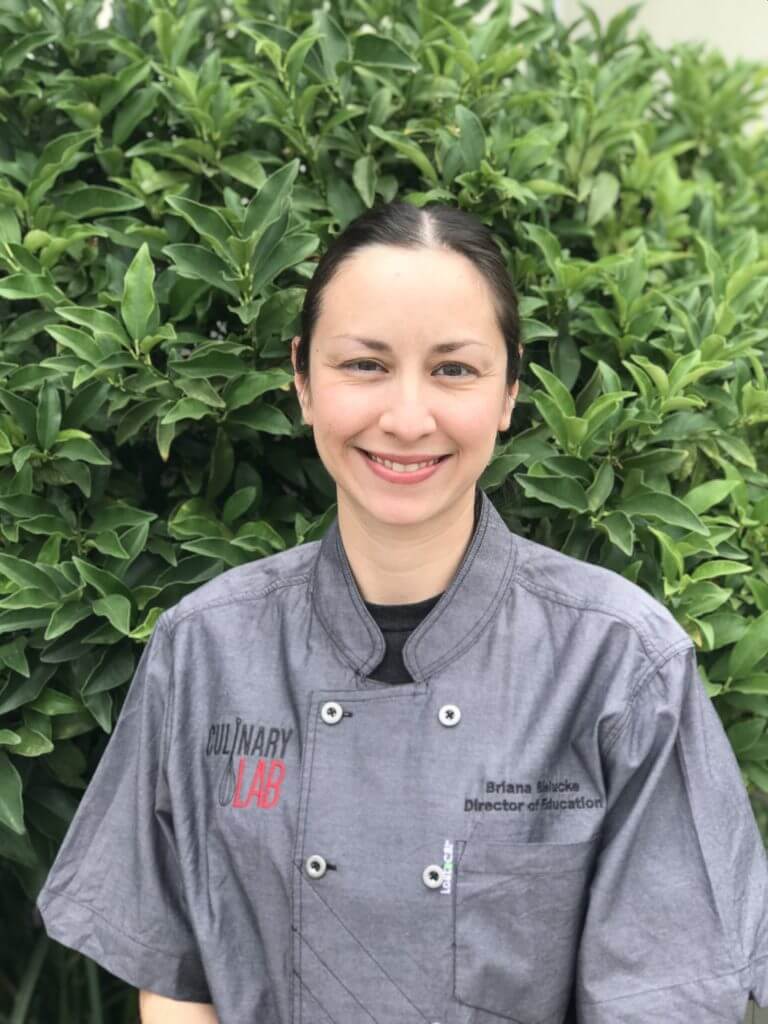What Is A Sous Chef? – Everything You Need To Know

What is a Sous Chef? Sous comes from the French word for “under.” A Sous Chef is a chef who works closely with the Executive Chef in a professional kitchen.
Becoming a sous chef is a mark of achievement indicating that a cook has graduated to a chef. Any chef wishing to prove themselves in the culinary world must do so on-the-job. The kitchen is one of the few professional workplaces where there is no substitute for experience.
Therefore, new culinary grads are not eligible for the title of sous chef. A sous chef must prove themselves by mastering each “station” in the kitchen as it is not an entry-level position.
Are you interested in becoming a Sous Chef? In this article, we will discuss the education and skills you’ll need, as well as what to expect from the job.
What Is A Sous Chef?
The term “Sous Chef,” which literally means the second chef, gives a lot of clues to the job description. The sous chef has one of the most important roles.
In a professional kitchen, a hierarchy exists that helps to organize the staff in the most productive way. This hierarchy is known in the culinary world as “the brigade.” The brigade system assigns each worker a position with specific duties. A sous chef plays an essential part in managing the kitchen efficiently.
The sous chef is directly under the executive or head chef and answers only to them. When the head chef is away or unavailable, the sous chef commands the restaurant as the executive chef would. A sous chef has an active part in running the kitchen each day. They help to develop the menu, manage payroll, order supplies, and ingredients, and manage the rest of the kitchen staff.
Everyone in the kitchen brings all situations and questions to the sous chef for resolution.
A sous chef often maintains this role for years to gain experience to become the head chef in the future.
Education: Does A Sous Chef Go to Culinary School?
As mentioned above, there is no substitute for experience in the kitchen. Many aspiring chefs have started their culinary careers washing dishes. Experiencing various roles in the kitchen. This helps a cook to understand the hows and whys of a professional kitchen in an intimate way. It can take years to build the experience and skills needed to become a successful sous chef.
Studying at a culinary school can fast track the process of becoming a sous chef. A culinary school can help you learn important professional techniques and methods in an environment designed to help you master the skills you’ll need. In culinary school, you can prepare before you enter a professional kitchen where learning can often be a “trial-by-fire” kind of experience.
When you choose a culinary school program, look carefully at job placement rates. Consider schools that offer internship programs to help you begin your career while you’re in school. Remember, attending culinary school can be a great way to fast track your culinary career and avoid spending many more years laboring in the kitchen to climb the professional ladder.
Sous Chef Responsibilities:
To become a successful Sous Chef, you will need to be creative, determined, and dedicated to your career. You must be patient as you manage your staff as well as customers. A good Sous Chef must also possess excellent communication skills. For example, good communication skills can help a sous chef ensure their staff feels appreciated and understands what is expected of them.
One of the Sous Chef’s responsibilities is often to work opposite the Head Chef. Most professional kitchens remain operational for many, many hours. Restaurants and hospitality venues that provide breakfast, lunch, and dinner have lots of hours for which to account. These establishments require management coverage even when the executive chef is unavailable or off work. The Sous Chef is generally responsible for covering those hours.
A Sous Chef’s Daily Responsibilities Include:
- Planning and overseeing the cooking of all menu items
- Delegating tasks to kitchen staff
- Ensuring that the kitchen operates in an efficient and timely manner
- Responding promptly to any problem that may arise and helping to resolve it
- Motivating kitchen staff members
- Establishing working schedules
- Providing staff assessments and feedback
- Mentoring and training junior staff
- Helping to design and prepare food and drink menus, including creating new dishes specials, and menu items when required
- Preparing tasting menus for customers interested in catering
- Maintaining a professional and positive environment for all kitchen staff
- Developing a network of suppliers and vendors
- Following all safety and security guidelines at all times
- Preparing dishes from the menu or as the customer requests
- Proficiency with kitchen tools and techniques
- Producing high-quality dishes
- Ability to adhere to the latest culinary trends and techniques
The Mentor/Apprentice Relationship
A type of mentor/apprentice relationship exists between an Executive Chef and Sous Chef. This relationship adds great value to the apprentice-like role of Sous Chef. Since becoming an Executive Chef requires experience often gained through fulfilling various lesser roles in the kitchen, it is important to embrace the role of Sous Chef and adopt a determined attitude in the kitchen. By becoming a successful Sous Chef, you can augment your culinary education and put yourself in a position to become an Executive Chef when the opportunity arises.
What Does The Schedule Look Like?
It’s no secret that a professional chef works long hours. For many people interested in pursuing a career as a chef, the hours are just another part of the adventure. If working long hours making tasty dishes sounds divine, you’ll likely make a great Sous Chef. Still, it’s helpful to know what to expect from the work schedule before you pursue a career as a professional chef.
A Sous Chef is often responsible for working the hours not covered by the Executive Chef. This may mean that the Sous Chef works early in the morning to take inventory and set schedules for kitchen staff. Conversely, working opposite the head chef could mean the Sous Chef works to prepare dishes late in the afternoon or plans the menu and orders necessary items late in the evening after closing.
The hours vary depending on the hours of operation for the restaurant. However, a Sous Chef can generally expect to work nights, weekends, and many holidays. Like most positions in a professional kitchen, the hours are generally long. In the end, being a professional chef is truly a labor of love.
Salary: How Much Does A Sous Chef Make?
A sous chef’s salary varies. However, they typically are paid between $20 and $23 per hour. According to the U.S. Bureau of Labor Statistics, in 2018 the median salary for a professional chef was $48,460 a year.
The size and location of the restaurant can affect your salary as a Sous Chef. Larger restaurants can generally offer their staff more compensation. Likewise, a chef can expect to make more money in a city like New York, Chicago, or Los Angeles.
A chef’s own skills can also affect their pay. Some restaurants may prefer to hire a sous chef with more experience, but less education. Other restaurants will insist their sous chef have a culinary degree.
As you gain experience, you’ll learn to recognize your strengths and capitalize on them to build a successful career in the culinary world.
A great Sous Chef has ambition, passion, and commitment. They take their jobs seriously. Sous Chefs usually have lots of kitchen experience, education, and genuinely enjoy working in a professional kitchen setting. Many culinary graduates dream of honing their culinary skills as a Sous Chef for a talented Executive Chef.
Sous Chefs usually possess culinary degrees and are willing to work long hours to ensure they produce quality dishes.
CulinaryLab Cooking School
CulinaryLab School offers a year-long diploma program for those who are aspiring to become a chef, learn modern cooking techniques, and pursue a career in culinary arts. Our program is dedicated to providing the most effective training through focused online curriculum, hands-on repetition practice to improve muscle memory, as well as mentorship opportunities.
We Offer:
- 16 to 1 student-teacher ratio
- 1,000-hour apprenticeship
- Hands-on training and no textbooks
- Professional-level culinary instruction
- Skill-building modules
If you aspire to become a chef and work in a professional kitchen, contact us today to learn more about our programs.










